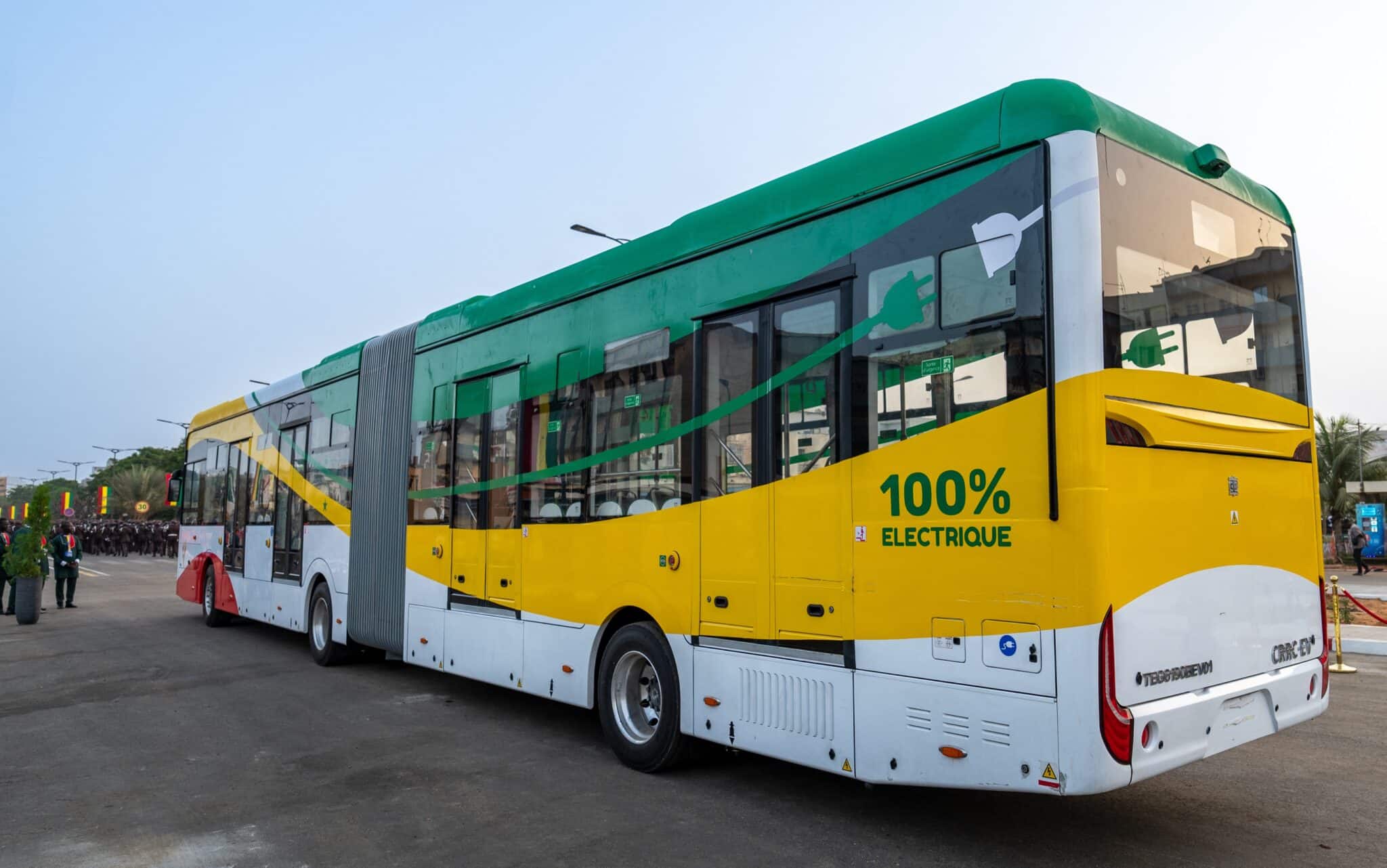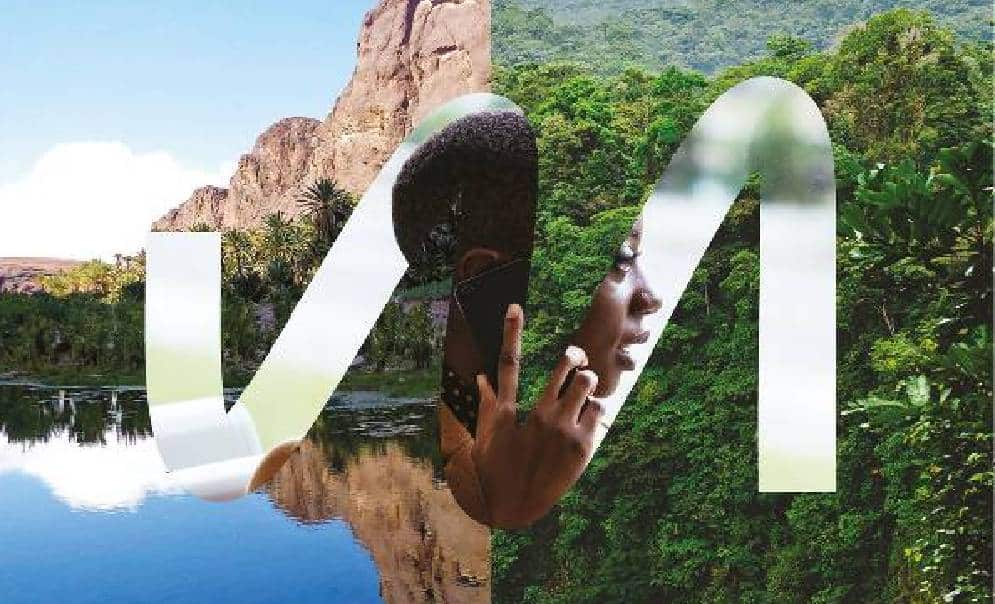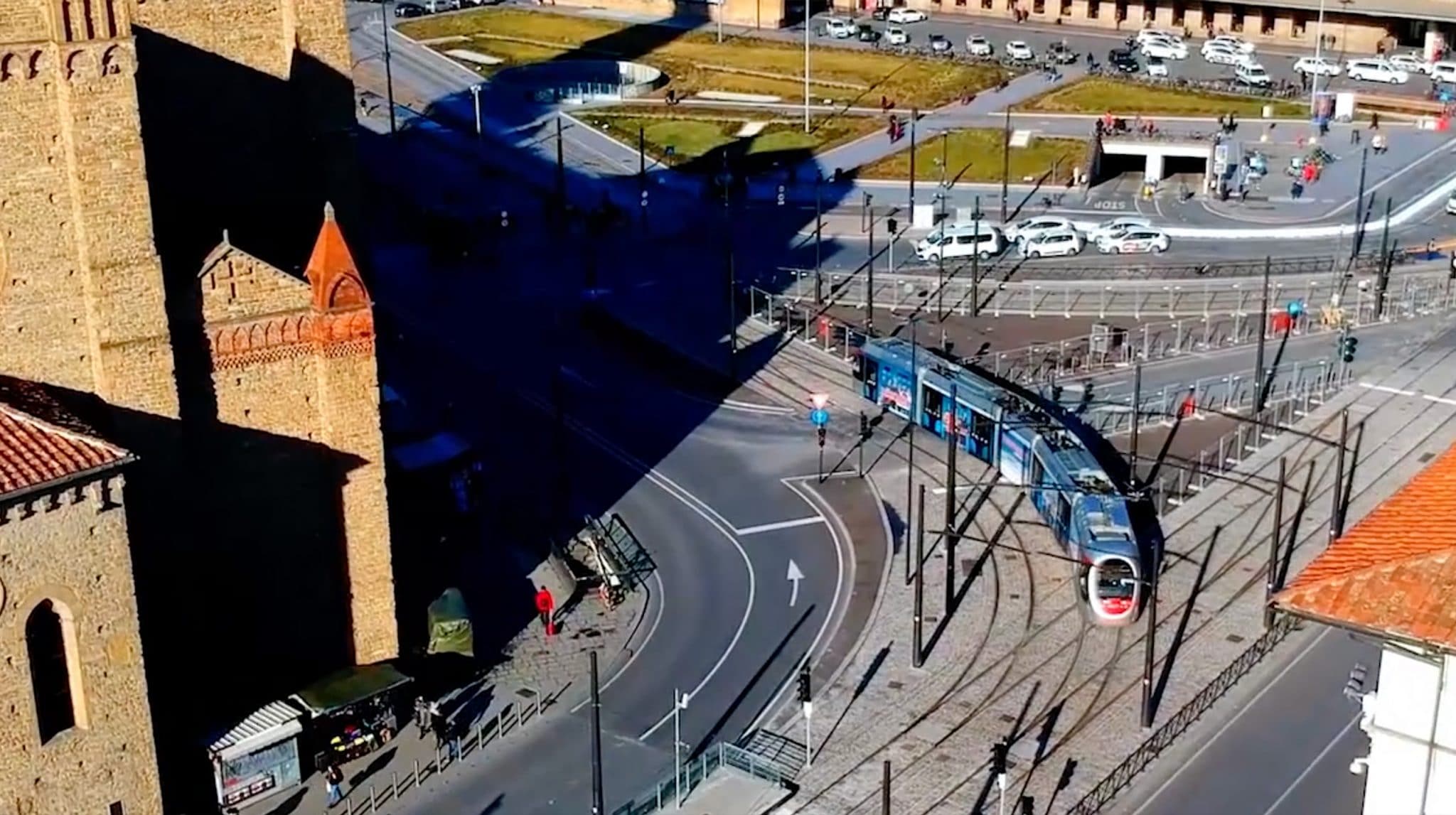News
Dakar Mobilité secures financing for the first-ever 100% electric BRT bus system in sub-Saharan Africa

30.11.2023
Dakar Mobilité, a Senegalese company owned by Meridiam and the Fonds souverain d’Investissements stratégiques du Sénégal (FONSIS), has raised €135 million needed to deploy Dakar’s future electric BRT bus network. Proparco, EAIF, PIDG TA (Technical Assistance) and the European Union (EU) joined forces to secure the financing.
Faced with chronic traffic jams in Dakar, leading to road insecurity, heavy air pollution and consequent greenhouse gas emissions, the Conseil exécutif des transports urbains durables (CETUD) undertook a wide-ranging program to reorganize the Senegalese capital’s urban transport network, notably by implementing a “Bus Rapid Transit” – BRT – system. When it goes into service, the system will link the Petersen bus station at Dakar Plateau (in the city center) to the prefecture of Guédiawaye in the northern suburbs, thanks to a 121-bus fleet, powered 100% by electricity. A first in sub-Saharan Africa!
To finance the Dakar BRT equipment, a €85.4 million loan is being provided in equal parts by Proparco, the private sector subsidiary of Agence Française de Développement, and Emerging Africa Infrastructure Fund (EAIF), acting through its management company Ninety-One. Both are also providing Dakar Mobilité with a loan for a total of €6.4 million to finance the replacement of the buses’ batteries at the end of their useful life (eight years). Two grants, one provided by the European Union (EU) for 7 M€, the other secured from PIDG TA for around 9 M€, complete the financing of the project. The equity is being provided by Meridiam and FONSIS.
The funding from the European Union is part of the investment package mobilized as part of the European Global Gateway strategy, aimed in particular at strengthening smart, clean and secure connections in the digital, energy and transport sectors, including urban mobility. By promoting clean urban mobility solutions, the EU is striving to improve the quality of life of people living in cities.
The BRT-system will become a major transportation option in the Dakar urban area, with an expected 300,000 passengers/day travelling between the suburbs and the city center. It will cover 18.3 km of Dakar, connecting 23 stations and 14 of the city’s most densely populated districts from north to south, via four lines (one “omnibus” line and three express or semi-express lines). Dakar residents should be able to use the first BRT buses by January 2024, with full availability of the system planned before summer 2024.
While the BRT infrastructure has been developed under the direct responsibility of CETUD, it has delegated – for a period of 15 years – the acquisition and maintenance of the vehicles and associated systems, as well as the operation of the BRT to Dakar Mobilité, a private company incorporated under Senegalese law. Dakar Mobilité is owned by Meridiam (70%) and FONSIS (30%), Senegal’s sovereign fund.
The Dakar BRT project is one of the most innovative energy transition projects to date in Africa. It contributes to the building of a complete, efficient, inclusive, reliable and low-carbon mobility system for Greater Dakar, with numerous positive impacts for the people of Dakar and Senegal:
– Thanks to the BRT, Dakar Mobilité will create around 1,000 direct and local jobs, giving priority to women’s access to employment and ensuring that young people benefit from the international expertise mobilized on the project to develop solid skills in mass public transport.
– BRT users will see their travel time to jobs, vital services and downtown activities reduced, with a clear improvement in service quality. Buses will connect the two ends of the line (Petersen and Guédiawaye) in 45 minutes, instead of 90 minutes today.
– Improved access for residents of peripheral areas to jobs, services and activities in downtown Dakar will promote employment within the Dakar region. Dakar Mobilité plans to introduce a social fare of up to -50% off the standard fare to enable underprivileged populations to take advantage of these new opportunities.
– The project includes high-quality, inclusive facilities in and around the stations, to ensure safe pedestrian traffic and good flow management, with public lighting on side roads along the BRT to reduce the risk of assaults on women, a space in each bus for passengers in wheelchairs and six places reserved for people with reduced mobility. The EU-funded gender action plan will focus on the role of women in transport.
– BRT is one of the key components of an ambitious strategy for sustainable urban mobility. It will help improve air quality in Dakar and reduce the country’s greenhouse gas emissions, with around 59,000 tonnes of CO2 avoided per year, according to Dakar Mobilité.
– In addition to the BRT, CETUD is gradually reorganizing a number of bus lines operated by AFTU and Dakar Dem Dikk, to ensure that passengers are efficiently directed to the BRT and the regional express train (TER), inaugurated in 2021. In addition to the BRT, TER and its back-up lines, the overall public transport network in the Dakar metropolitan area will be completed downstream by the conventional bus network.
The BRT project will contribute to the Sustainable Development Goals: SDG #9 (industry, innovation and infrastructure), SDG #11 (sustainable cities) and SDG #13 (climate change).


